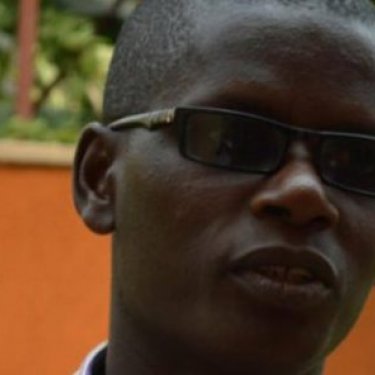Burundi: RSF appeals to president over journalist’s disappearance

Reporters Without Borders (RSF) asks President Pierre Nkurunziza to do everything possible to locate Jean Bigirimana, a journalist working for Iwacu and Infos Grands Lacs who was last seen in the custody of members of the National Intelligence Service (SNR) in the central province of Muramvya on 22 July.
RSF calls on the Burundian authorities to produce evidence that Bigirimana is still alive and to launch a formal investigation to establish his present whereabouts.
Last week, an SNR source said he was still alive and was being held in Bujumbura. But in the absence of any evidence from the authorities to support this claim, RSF is forced to conclude that it seems increasingly unlikely.
A team of journalists dispatched by the newspaper Iwacu found two bodies at the bottom of a ravine in Muramvya a few days ago but it has not yet been possible to establish whether one of them is Bigirimana’s. The Red Cross and a Burundian emergency services team were trying to recover the bodies yesterday.
“Jean Bigirimana was last seen by several witness in the custody of the SNR, which confirmed that it was holding him and then retracted,” RSF said. “It is outrageous that, three weeks later, we still do not know his whereabouts. We call on President Pierre Nkurunziza to just do his job and to call his intelligence service to account, so that we can know where Bigirimana is."
“An operation to recover two bodies in under way in Muramvya but, regardless of its results, the authorities must explain what happened to this journalist. We urge President Nkurunziza, who has gone to great lengths to hold on to power, to use this power wisely because Burundi has become a lawless country where anyone can disappear from one day to the next, apparently without repercussions. Is this what Nkurunziza plans for his people?”
Instead of helping the search being conducted by the Iwacu team, the police at first tried to obstruct it. As the journalists progressively published the results of their enquiries, they encountered attempts by the local police to intimidate them.
Police spokesman Pierre Nkurikiye even attacked the journalists in an interview for Jeune Afrique on 8 August. “Iwacu does not want to cooperate,” he said. “We asked the journalists not to publish their findings and to give them to the police. But they have not done that. What they have published has just confused our investigator’s work.”
When the journalists first reported discovering a body in a ravine (a day after the first joint field visit by the journalists and police), the police spokesman responded by saying this was just an allegation and had not been formally referred to him. His attitude raises grave doubts about the good faith of the authorities’ professed desire to establish what has happened to Bigirimana.
The members of the United Nations bureau in Bujumbura have meanwhile yet to go to Muramvya although it is only 40 km away.
Iwacu editor Antoine Kaburahe, who now lives in exile, continues to be very concerned about Bigirimana but says he has noted a change in the behaviour of the police and hopes it will be positive.
“The police spokesman now retweets what Iwacu reports about the case so you could say this is an implicit recognition of our work,” he said. “Nonetheless, it is not normal that the journalists are more effective and motivated than the police.”
Burundi is ranked 156th out of 180 countries in RSF’s 2016 World Press Freedom Index.



